- Kenmore refrigerator water filters
- Whirlpool refrigerator water filters
- Samsung refrigerator water filters
- GE refrigerator water filters
- LG refrigerator water filters
- Frigidaire refrigerator water filters
- KitchenAid refrigerator water filters
- Maytag refrigerator water filters
- Kenmore Elite refrigerator water filters
- Estate refrigerator water filters
- GE Profile refrigerator water filters
- Amana refrigerator water filters
- Bosch refrigerator water filters
- Dacor refrigerator water filters
- Electrolux refrigerator water filters
How to replace a riding lawn mower spark plug
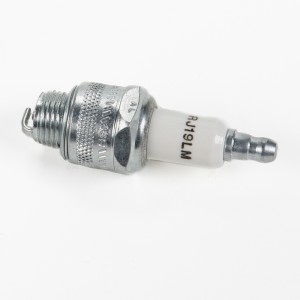
This DIY riding mower repair guide gives step-by-step instructions for replacing the spark plug on your riding lawn mower. You'll notice the engine runs rough or is hard to start if it has a broken or fouled spark plug. To keep the mower running smoothly, replace the spark plug once a year, or as often as your owner's manual specifies. Replace the spark plug with a manufacturer-approved riding lawn mower part if it's fouled or the ceramic insulator is cracked.
Use the procedure in this repair guide and video to replace the spark plug in Craftsman, Husqvarna, Murray, MTD, Toro, Troybilt and Ariens riding mowers and tractors.
Quick links
Video
Instructions
Tools required
Spark plug wrench
Gap tool
Work gloves
Repair difficulty
Time required
15 minutes or less
Repair difficulty
Time required
15 minutes or less
Replacing a spark plug on a riding lawn mower
This video explains how to replace the spark plug on a riding lawn mower.
Instructions
- 01.
Disconnect the spark plug
Park the tractor on a level surface in a well-ventilated area and set the parking brake.
Turn the ignition switch off and remove the key.
Let the engine cool.
Wear work gloves to protect your hands.
Lift the tractor hood and disconnect the spark plug wire.
Tip: Disconnect both spark plug wires if your tractor has 2 cylinders.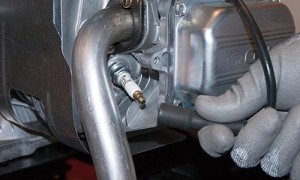
PHOTO: Disconnect the spark plug.
- 02.
Remove the old spark plug
Use a spark plug wrench to remove the spark plug from the engine.
Tip: You can instead use a deep socket and ratchet to remove the spark plug.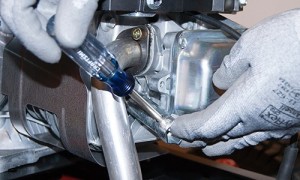
PHOTO: Remove the old spark plug.
- 03.
Install the new spark plug
Using a gap tool, set the gap on the spark plug to the gap specified in the owner’s manual. For this engine, the gap is .03 inches.
Thread the new spark plug into the engine and tighten it with the spark plug wrench. Tighten the spark plug firmly, but don't overtighten, so you can remove the spark plug easily the next time you replace it.
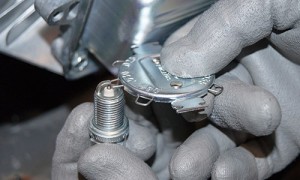
PHOTO: Gap the spark plug.
- 04.
Reconnect the spark plug
Reconnect the spark plug wire and lower the tractor hood.
Tip: Reconnect both spark plug wires if your engine has 2 cylinders.
Warning: Undertaking repairs to appliances can be hazardous. Use the proper tools and safety equipment noted in the guide and follow all instructions. Do not proceed until you are confident that you understand all of the steps and are capable of completing the repair. Some repairs should only be performed by a qualified technician.
Most common symptoms to help you fix your riding mowers & tractors
Choose a symptom to see related riding mower and lawn tractor repairs.
Main causes: faulty battery, bad alternator…
Main causes: damaged cutting blade, worn deck pulley, damaged mandrel pulley, loose fasteners on mower deck components…
Main causes: damaged tie rods, bent or worn wheel spindle, worn front axle, damaged sector gear assembly…
Main causes: worn or broken blade belt, broken belt idler pulley, blade clutch cable failure, bad PTO switch, damaged ma…
Main causes: punctured tire or inner tube, leaky valve stem, damaged wheel rim…
Main causes: engine overfilled with oil, leaky head gasket or sump gasket, damaged carburetor seals, cracked fuel pump, …
Main causes: clogged carburetor, damaged flywheel key, dirty spark plug, stale fuel, improper valve lash, engine needs a…
Main causes: shift lever needs adjustment, neutral control needs adjustment…
Main causes: worn or broken ground drive belt, bad seat switch, transaxle freewheel control engaged, transaxle failure, …
Most common repair guides to help fix your riding mowers & tractors
These step-by-step repair guides will help you safely fix what’s broken on your riding mower or lawn tractor.
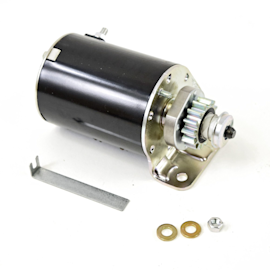
How to replace the starter motor on a riding lawn mower
If you hear the solenoid click but don’t hear the starter motor spin when you turn the key, follow these steps to replac…
Repair difficulty
Time required
30 minutes or less
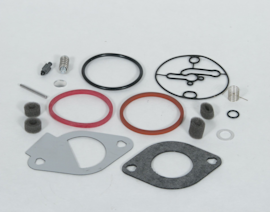
How to rebuild a riding lawn mower carburetor
Get your sputtering carburetor running smoothly in 60 minutes.…
Repair difficulty
Time required
60 minutes or less
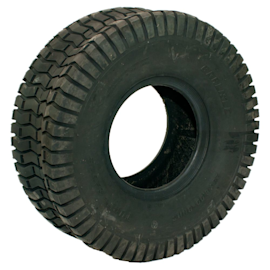
How to replace a riding lawn mower rear tire
Your mower can’t run on a damaged rear tire. Here’s how to install a new one.…
Repair difficulty
Time required
60 minutes or less
Effective articles & videos to help repair your riding mowers & tractors
Use the advice and tips in these articles and videos to get the most out of your riding mower or lawn tractor.

Learn about all the convenient features on our Sears PartsDirect website that make your parts purchases easier.…
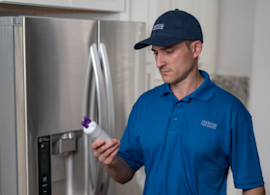
Get answers to frequently asked questions about Sears and Sears PartsDirect.…
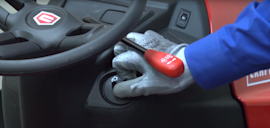
Check the starter solenoid, starter motor, wiring, battery and engine.…